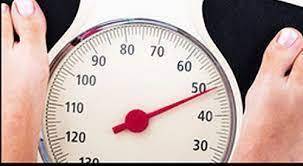Research shows that reaching a plateau, lack of sleep, and not drinking enough water are just three factors that can hinder weight loss progress. Studies indicate that those who do not get enough sleep are more likely to consume sugary foods, which may lead to weight gain over time. A 2010 research paper by researchers in the United States found that among those who followed a calorie-restricted diet for two weeks, those who slept for 8.5 hours lost more weight than those who only stayed in bed for 5 hours. Dr. Ian Walsh, an assistant professor of sports, exercise, and rehabilitation at Northumbria University, stated in an article published in 2020, "It is clear that sleep is important for weight loss." He added, "Thus, sleep should be considered a key component alongside diet and physical activity as part of a healthy lifestyle."
**Fat Loss but Muscle Gain**
Most people expect to see a decrease in their weight after two weeks of healthy eating and gym attendance. However, they may have lost fat and gained denser muscle instead. This means they can weigh the same, yet their body composition has changed. Dr. Duane Melor, a leading nutritionist from Aston University, told MailOnline, "The scales are not always the best way to measure success, especially when it comes to health." He suggested, "Track progress by focusing on other weight loss metrics, such as clothes fitting better and previously difficult exercises becoming easier."
**Inaccurate Tracking of Progress**
Experts say that monitoring what you eat during meals and snacks is crucial for weight loss. However, those struggling to shed a few pounds may not be doing so as accurately as they believe. A team at the University of Essex surveyed 200 people about how much they thought they ate daily. They then tracked the amount they actually consumed and found that volunteers underestimated their daily food intake by an average of 900 calories. In addition to underestimating calorie intake, dieters can also overestimate how much they burn.
**Not Drinking Enough Water**
Health officials state that drinking eight cups a day is essential to maintain body hydration. However, H2O intake is also crucial for those trying to change the scales, as dozens of studies have indicated. Research indicates that the more hydrated your body is, the better it performs tasks and burns fat. Scientists found that liquid can suppress appetite and enhance metabolism. One research paper found that those who drank 500 ml of water before each meal among those following a low-calorie diet lost an additional 2 kg (4.4 lbs) over a three-month study. Dr. Helen Parity, the study's author and a senior lecturer at the University of East Anglia focusing on weight control and obesity, mentioned, "The beauty of these results lies in their simplicity. Just drinking half a liter of water three times a day before your main meals could help reduce your weight. It’s something that doesn't require much effort to integrate into our busy daily lives."
**Medical Condition**
For some, eating well, exercising, and getting enough sleep may not be enough to lose weight. A range of medical conditions can make weight loss difficult. These include an underactive thyroid, where the thyroid does not produce enough hormones necessary to regulate body metabolism—the process that converts food into energy. As a result, individuals with this condition burn fewer calories. Another condition, polycystic ovary syndrome, occurs when women produce a higher amount of androgens than normal.




